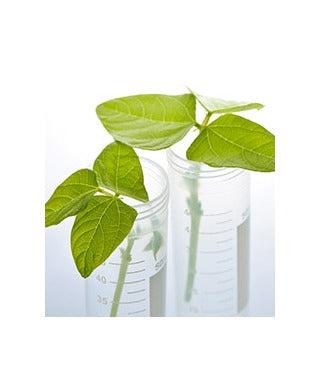Are All Organic Foods Non-GMO?
When perusing the shelves of a local grocer, consumers are likely to see food labeled both as organic and non-GMO. Sometimes these labels appear in tandem on the same products, but they’re often mutually exclusive. So, what’s the difference between “organic” food and supplements, and those products labeled “non-GMO?”
What Organic Means
The exact definition of “organic” depends on which organic label is posted. The “100% Organic” label means that the product must contain 100% organically produced ingredients, which means no GMOs are allowed.
In order to qualify for the Certified Organic or USDA Organic labels, no more than 5% of a product’s makeup is permitted to be non-organic. All ingredients (including the “non-organic” 5%) must be on the USDA’s list of products permissible to be included in organic-certified foods. This list does not generally permit GMOs, but there are certain exceptions, such as cornstarch and soy lecithin, permitted only when organic alternatives are not available.
With organic products, there is also the chance that GMO contamination may have occurred naturally, through cross-pollination or windborne seeds.
So, an organic label usually means a product is GMO-free, but it is not a 100% guarantee.
Non-GMO Defined
The Non-GMO label means that the ingredients in a given product have been verified by the Non-GMO Project not to contain genetically modified material. This is accomplished by testing the ingredients during processing, and by spot-checking different points in the supply chain to ensure the GMO-free status of large quantities of material.
Producers are then subject to yearly inspections to verify their continued compliance with Non-GMO Project standards. Guidelines are in place to ensure that the raw materials used in the production of the final product are kept relatively isolated, to eliminate the possibility of cross-contamination.
It’s worth noting that while the acquisition of a Non-GMO label precludes the use of certain herbicides that contain GMOs, it does not stipulate that “Non-GMO” products must be grown organically. They may be grown using conventional, non-organic methods, including the use of pesticides.
In conclusion, Organic and Non-GMO are not functionally equivalent, but both guarantee that certain standards are followed. Consumers seeking to avoid GMOs would do well to select products bearing these seals of assurance.
Pure Hawaiian Spirulina is Non-GMO Project Verified and BioAstin Hawaiian Astaxanthin is non-GMO - not made with ingredients that were genetically modified - and are two examples of health supplements cultured without the use of pesticides and herbicides.
Sources:
http://www.huffingtonpost.com/richard-schiffman/gm-foods_b_1650576.html
http://justlabelit.org/about-ge-foods/ge-crop-history/
http://www.huffingtonpost.com/builtlean/diet-and-nutrition_b_4323937.html
http://eatlocalgrown.com/article/12060-top-gmo-foods.html
http://www.nongmoproject.org/product-verification/non-gmo-project-standard/

